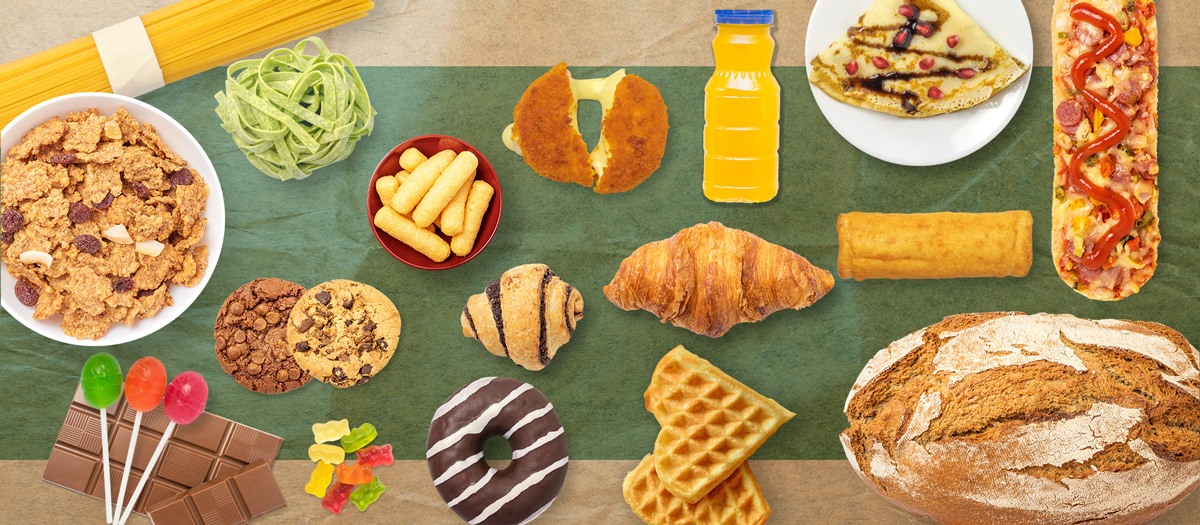Hair loss can be a distressing experience, impacting self-esteem and confidence. While genetics, stress, and underlying medical conditions often play a role, did you know that your diet can significantly influence the health and vitality of your hair? What you eat (or don’t eat) can directly impact your hair follicles, leading to thinning, breakage, and even accelerated shedding. If you’re noticing more hair on your brush than usual, it might be time to take a closer look at your plate. Here are 10 foods that can contribute to hair loss and thinning, and why you might want to consider limiting them:
1. Sugary Foods and Drinks

Excessive sugar consumption leads to spikes in blood sugar and insulin. This can trigger a hormonal imbalance, specifically increasing androgen levels (male hormones) which can shrink hair follicles and accelerate hair loss, especially in women. High sugar intake also fuels inflammation, which is detrimental to overall scalp health and nutrient absorption.
2. Refined Carbohydrates

Why it’s a culprit: Think white bread, pastries, white rice, and pasta. These refined carbs behave similarly to sugar in your body, causing rapid blood sugar spikes and insulin surges. This can lead to increased production of DHT (dihydrotestosterone), another hormone known to miniaturize hair follicles. Furthermore, these foods offer little nutritional value, depriving your hair of essential building blocks.
3. Fried and Greasy Foods

Foods high in unhealthy fats, like those found in fried snacks and fast food, can lead to an overproduction of sebum on your scalp. While sebum is a natural moisturizer, excess amounts can clog hair follicles, leading to scalp infections, inflammation, and ultimately, hair shedding.
4. High-Mercury Fish

Certain large fish like swordfish, king mackerel, and some types of tuna contain high levels of mercury. Mercury poisoning has been linked to hair loss as it can disrupt protein balance and interfere with the absorption of essential minerals like zinc, which is crucial for hair growth. Opt for lower-mercury alternatives like salmon, cod, and sardines.
5. Artificial Sweeteners

Found in diet sodas and many “sugar-free” products, artificial sweeteners like aspartame have been anecdotally linked to hair loss by some individuals. While more conclusive research is needed, some studies suggest that aspartame may be toxic to hair follicles.
6. Excessive Alcohol

Regular and excessive alcohol consumption can lead to dehydration, which makes hair brittle and prone to breakage. Alcohol also depletes the body of vital nutrients like zinc, iron, and B vitamins, all of which are essential for healthy hair growth and structure.
7. Dairy Products (for some individuals)

For individuals sensitive to dairy, particularly full-fat varieties, consumption can lead to inflammation and hormonal shifts. Dairy may stimulate oil glands and increase DHT levels in some people, contributing to clogged follicles and hair fall. If you suspect dairy sensitivity, an elimination diet under professional guidance might be beneficial.
8. Foods High in Selenium (in excess)

While selenium is an important trace mineral for hair health, consuming it in very large quantities can lead to hair loss. Brazil nuts are particularly high in selenium, so it’s important to consume them in moderation.
9. Raw Egg Whites

While cooked eggs are fantastic for hair (packed with protein and biotin!), raw egg whites contain avidin, a protein that can bind to biotin and prevent its absorption. Biotin is a crucial B vitamin known for promoting hair growth and strength.
10. Heavily Processed Foods

Packaged snacks, ready meals, and fast food often lack essential nutrients and are loaded with unhealthy fats, sugar, and sodium. A diet rich in processed foods can lead to overall poor nutrition, which directly compromises hair health and can contribute to thinning and loss.
The Takeaway
While these foods might be contributing factors, hair loss is often multi-faceted. If you’re experiencing significant hair loss, it’s always best to consult with a dermatologist or healthcare professional to determine the underlying cause and discuss personalized solutions. However, making informed dietary choices by limiting these hair-damaging foods and focusing on a nutrient-rich, balanced diet can go a long way in promoting healthier, stronger hair from the inside out. Your hair will thank you!
